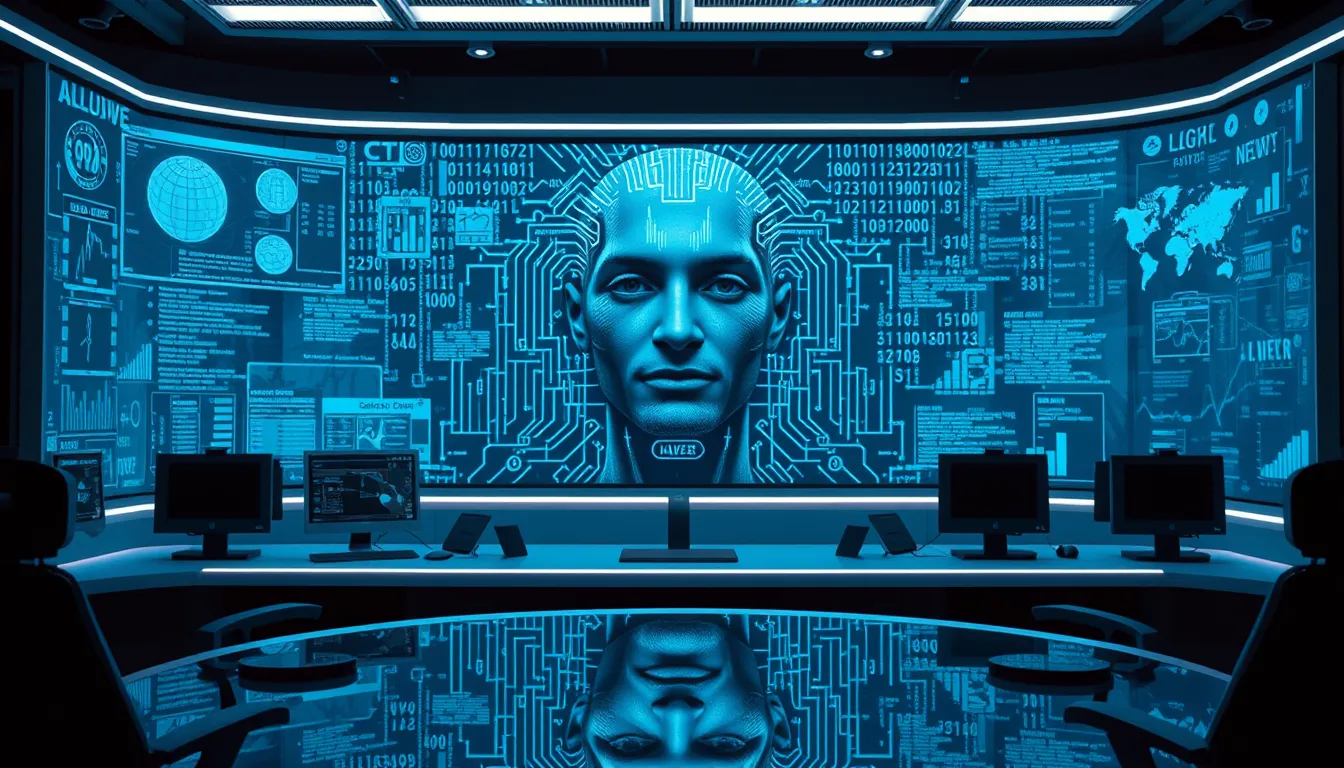Now Reading: Innovative China MCP Framework: Redefining AI Assistants
-
01
Innovative China MCP Framework: Redefining AI Assistants
Innovative China MCP Framework: Redefining AI Assistants

Innovative China MCP Framework: Redefining AI Assistants
In today’s rapidly evolving tech ecosystem, the transformative power of the China MCP framework is reshaping the way we perceive digital innovation. This revolutionary approach not only champions advanced AI assistants, but also catapults businesses and public services into a new era of efficiency and effectiveness. In this article, we will explore how the China MCP framework is driving AI process automation and digital transformation in China, and examine its real-world applications across various sectors.
Embracing the Future with the China MCP Framework
China’s decisive push towards integrating the China MCP framework into everyday operations marks a key turning point in the world of technology. Unlike traditional AI implementations, this innovative model redefines what AI assistants can accomplish. Far beyond simple information retrieval, these AI systems are now equipped to perform tasks such as data management, scheduling, and complex decision support. The strategic initiative is backed by leading tech conglomerates and strong governmental policies, ensuring that every step is taken towards a smarter and more resilient digital infrastructure.
Enhancing Efficiency with MCP-Enabled AI and Process Automation
One of the most compelling aspects of this transformation is the capability of MCP-enabled AI to drive seamless process automation. By leveraging advanced machine learning algorithms and real-time data processing, these AI assistants can execute complex tasks with a level of precision that outperforms conventional digital systems.
Here are some notable benefits:
- Improved Task Execution: Enhanced data processing allows for faster and more accurate operations in both public and private sectors.
- Increased Operational Productivity: Businesses experience greater efficiency as AI assistants take over repetitive and administrative tasks.
- Real-World Functionality: The focus on practical applications ensures that the technology delivers measurable benefits in everyday operations.
These capabilities not only reinforce public service efficiency but also contribute to the broader digital transformation across various industries in China.
MCP Adoption in Healthcare and Beyond
The healthcare sector stands as a significant beneficiary of the China MCP framework. Through MCP adoption in healthcare, AI assistants are revolutionizing patient management by undertaking tasks such as updating records, monitoring health metrics, and even predicting potential medical concerns before they escalate. This proactive use of technology reduces human error and enhances patient safety. Medical professionals are now better able to focus on critical care while the system assists with routine tasks, ensuring a streamlined and effective healthcare delivery process.
Moreover, industries like transportation and logistics are reaping similar benefits. AI assistants optimize routing, monitor shipments, and deliver actionable insights that reduce costs and improve service delivery. As enterprises incorporate these advanced systems, they embrace a future where digital transformation is integral to maintaining a competitive edge.
Digital Transformation in China – A Global Benchmark
China’s approach to digital transformation is setting global standards. By integrating the China MCP framework into numerous applications, the country is not just enhancing its technological fabric but is also inspiring worldwide innovation. The framework is a strategic blend of operational excellence and next-generation AI process automation, serving as a model for other nations. This bold initiative paves the way for entrepreneurs and startups to explore new horizons in AI, spurring further research and development.
Overcoming Challenges and Fostering Innovation
Despite its promising advantages, the implementation of the China MCP framework is not devoid of challenges. Concerns related to data security, privacy, and the risk of over-reliance on autonomous systems are being actively addressed by Chinese authorities. Robust cybersecurity measures, stringent data governance policies, and continuous monitoring are integral to mitigating these risks. By balancing innovation with responsibility, the framework not only enhances operational efficiency but also builds trust among its users.
Additionally, the transformative changes brought about by this framework are influencing the workforce. Routine tasks are gradually being automated, giving employees the opportunity to engage in strategic, high-value activities. Ongoing training programs and educational initiatives ensure that the workforce remains adaptable and well-equipped to leverage new technological capabilities. This evolution is helping to foster a culture of continuous learning and innovation, which is essential for sustained economic growth.
The Road Ahead – A New Era of AI-Driven Transformation
Looking forward, the impact of the China MCP framework appears poised to extend well beyond its initial applications. Early pilot projects have demonstrated substantial improvements in task execution speeds, operational accuracy, and overall service quality. As more data is gathered and analyzed, we can expect the benefits of this initiative to flourish across a variety of sectors, further establishing China’s leadership in AI innovation.
The journey is ongoing, with continuous enhancements ensuring that the framework remains at the forefront of digital transformation. Public and private sectors alike are witnessing a paradigm shift, as operational efficiencies are redefined and intelligent automation becomes the norm.
The ripple effects of this innovation are expected to drive similar advancements globally, marking the start of an international wave of AI-powered modernization.
Conclusion
In summary, the China MCP framework is a powerful catalyst for change. By redefining the very essence of AI assistants, it is fostering an environment where advanced technology and human capability work in tandem to create smarter, more efficient processes. From healthcare to logistics and beyond, the real-world applications of this framework are vast and transformative. As nations around the globe observe China’s digital transformation journey, the lessons learned here could serve as an invaluable blueprint for future technology integration efforts.
As we look towards the future, it is clear that the innovative spirit embodied by the China MCP framework will continue to drive technological advancements, enhance operational productivity, and ultimately, reshape the global landscape of digital innovation.

























